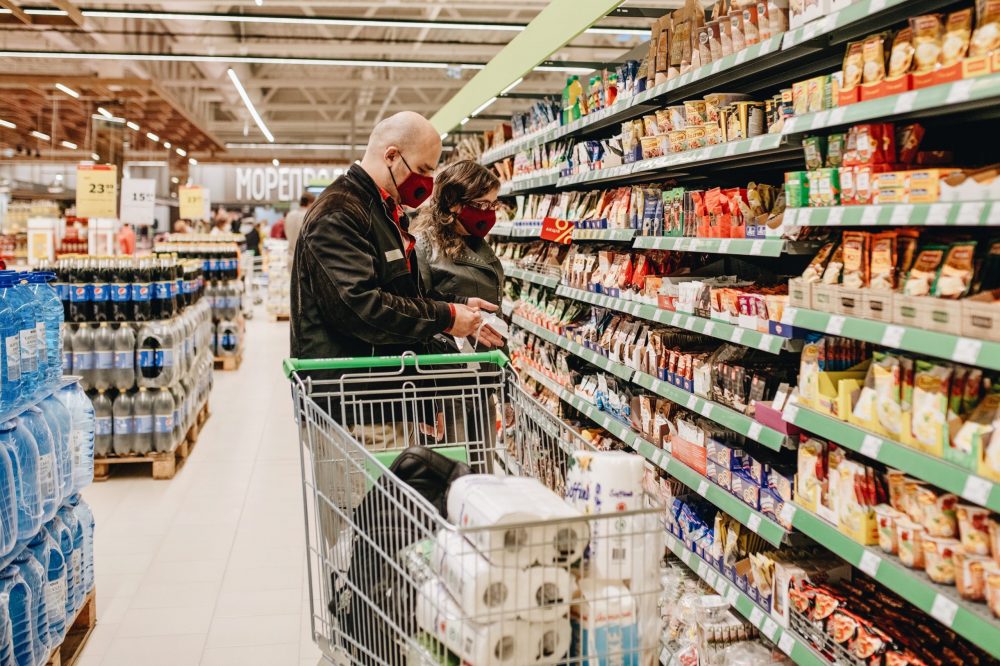Packaging dates back to the dawn of time and includes everything from wooden boxes to glass, paper, tin, metals, and aluminium. Flexible packaging is made up of numerous layers of different polymers with different mechanical and physical properties. For most food and FMCG products, it has evolved into a second skin. Remaining popular among both consumers and brand owners, flexible pouches are preferred over other material as they are simple to open, transport, and store. They are favoured by brand owners for similar reasons. The package’s flexible layers can be dropped, squished, and twisted while still maintaining their protective structure. Transporting flexibly packaged products becomes significantly safer and less expensive in this method. Flexible packages, on the other hand, aren’t just useful for sales. When compared to traditional rigid packaging, flex pouches use 60% less plastic and weigh 23% less. Not only does this save production costs, but it also reduces waste at the conclusion of the package’s life cycle. Flexible plastic pouches are also more than just travel-friendly and long-lasting. They are far more efficient to transport because of their folding design, which reduces fuel usage and CO2 emissions. Pouches have been shown to be an advantageous choice for businesses due to their unique characteristics, and with further improvements, pouches will only become more valuable in the future.
Sustainability
Plastic packaging is used as principal packaging in almost all industries, including medicine, FMCG, food & beverage, and textiles, to protect items from oxygen, moisture, bacteria, and scent permeation. Every year, an estimated 8.8 million metric tonnes of plastic garbage is dumped into the oceans and coastal areas, taking hundreds of years to disintegrate, if at all. By 2050, there will be more plastic in the ocean than fish if nothing is done. Every day, we read in the newspapers about the decreasing indices of air, water, and soil quality. The impact of unrestrained consumption patterns has been apparent as pollution levels and global temperatures have risen, and natural disasters have become increasingly unpredictable. We need to change our methods and look for a solution that is both new and beneficial to our lives. Choosing environmentally friendly packaging is the way forward. A few decades ago, going green and eco-friendly was considered a niche concept, but today it’s the need of the hour. With an assertive force to promote sustainability, participating in creating a circular economy has now become the agenda for most futuristic packaging companies. Moreover, consumers are more likely to buy ecologically friendly items these days, and flexible packaging has the potential to be one of the most sustainable packaging designs available.
As polymer prices rise and environmental demands rise, flexible packages with thinner sheets continue to hit the shelves. Pouch packaging offers a two-fold benefit of using fewer resources in packaging and also reducing food waste due to its unique design structure. Improved barrier properties have emerged from changes in the layers’ composition, increasing the product’s shelf life along the supply chain. Flexible pouches allow for more product extraction than conventional types of packaging, resulting in more food being consumed rather than discarded. In general, they have a higher product-to-packaging ratio than rigid packaging.
The lack of recyclability has long been a drawback of flexible packaging. Yet things are shifting in the domain. R&D and innovation have advanced dramatically, and industry leaders such as the Montage Group are working to ensure that multi-layered high-barrier materials are 100 percent recyclable. The company has concentrated industry efforts on making flexible pouch packaging more environmentally friendly. For the first time, the industry is witnessing a breakthrough in recyclable flexible packaging technology. This is a win-win situation for converters trying to meet sustainability claims, brand owners or shopkeepers looking to go green, and customers interested in participating in a recycling programme. Package engineers must evaluate environmental consequences from a lifetime perspective while adopting any new packaging format. Montage Group, a packaging manufacturing company, is leading the way in the journey to sustainability by benchmarking current packaging designs, considering alternatives, and making informed decisions.
Atit Gandhi, The Montage Group
Atit Gandhi is a self-made leader with 26 years of rich experience in the flexible packaging industry. He took over the Montage Group in 2012 to develop their plastic packaging division and has served the biggest national and international FMCG companies. With a profound belief in sustainable packaging and creating a circular economy, Atit Gandhi is an exemplary business leader and a packaging expert for FMCG goods.






